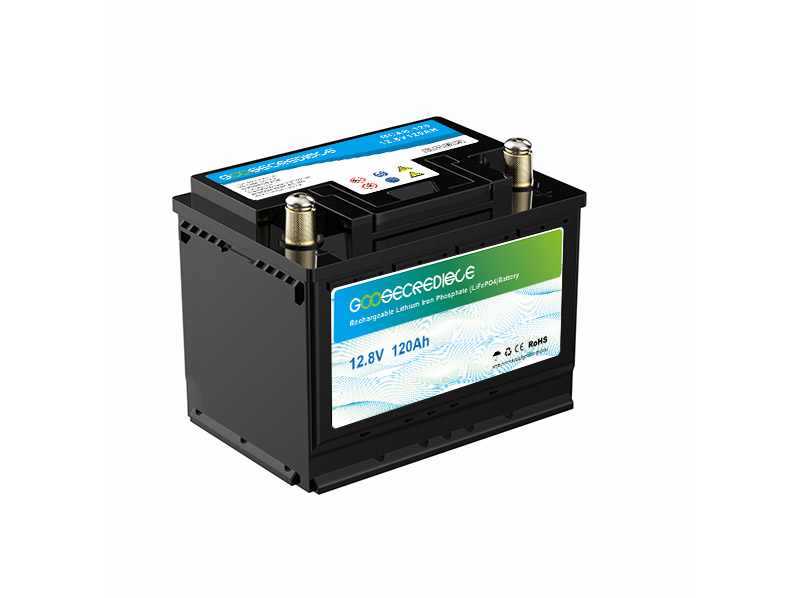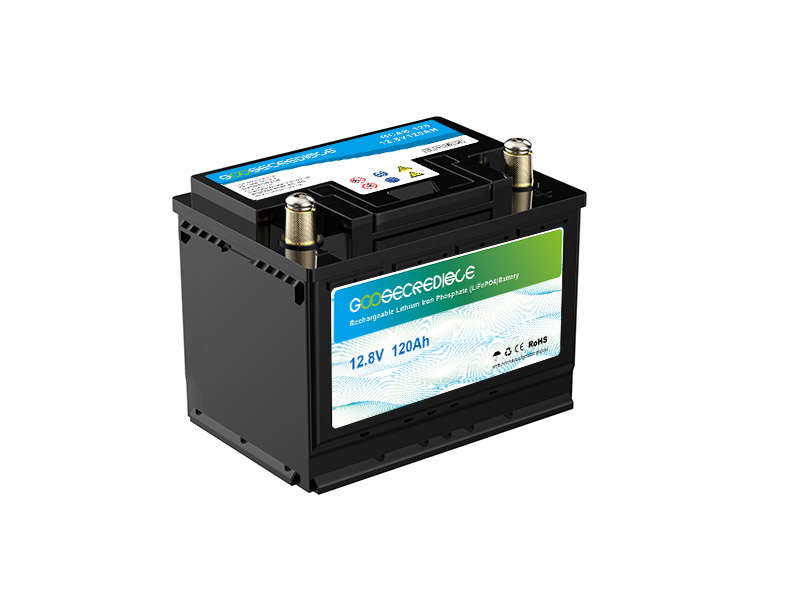The Long Lifespan of LiFePO4 Batteries: Understanding its Durability and Reliability
LiFePO4 batteries are becoming increasingly popular in various applications, including electric vehicles, renewable energy storage, and backup power systems. These batteries are known for their high energy density, long cycle life, and excellent safety performance. In this article, we will discuss the durability and reliability of LiFePO4 batteries and explain why they have a longer lifespan compared to other battery technologies.
Durability of LiFePO4 Batteries
LiFePO4 batteries are made of lithium iron phosphate as the cathode material, which is a highly stable compound. This material is not prone to thermal runaway or explosions, making it one of the safest cathode materials for lithium-ion batteries. Moreover, LiFePO4 batteries have a higher thermal stability and can withstand high temperatures without degrading or losing their performance.
Another factor that contributes to the durability of LiFePO4 batteries is their robustness. These batteries have a strong cycle life that can withstand thousands of charge and discharge cycles without significant degradation. They also have a high resistance to overcharging and over-discharging, which can cause irreversible damage to the cells.
Reliability of LiFePO4 Batteries
The reliability of LiFePO4 batteries is due to their consistent performance and low self-discharge rate. Unlike other battery technologies, LiFePO4 batteries do not experience a significant drop in capacity after a few months of storage. They can retain their charge for several months without requiring maintenance or recharging.

Moreover, LiFePO4 batteries have a low internal resistance, which means they can deliver high currents without losing their voltage or overheating. This feature makes them ideal for applications that require high power output, such as electric vehicles and solar energy storage.
Finally, LiFePO4 batteries have a longer lifespan compared to other battery technologies. These batteries can last up to ten years or more, depending on their usage and maintenance. This long lifespan reduces the overall cost of ownership and makes them a cost-effective solution for many applications.
Conclusion
In summary, LiFePO4 batteries are durable and reliable due to their robustness, low self-discharge rate, and consistent performance. These batteries have a longer lifespan compared to other battery technologies, making them an ideal choice for applications that require high performance and long-term reliability. Moreover, their excellent safety performance and thermal stability make them one of the safest lithium-ion batteries available in the market.
-
 A high-quality 24V on-board battery charger is an essential component for efficient charging of batteries in various applications. Whether it is for electric vehicles, boats, or other mobile equipment, a reliable battery charging system is crucial for ensuring the longevity and performance of the batteries. The 24V on-board battery charger is designed to provide a stable and consistent charge...En savoir plus
A high-quality 24V on-board battery charger is an essential component for efficient charging of batteries in various applications. Whether it is for electric vehicles, boats, or other mobile equipment, a reliable battery charging system is crucial for ensuring the longevity and performance of the batteries. The 24V on-board battery charger is designed to provide a stable and consistent charge...En savoir plus -
 Introduction: Being stranded on the side of the road due to a dead car battery is something that no one wants to experience. It is frustrating, inconvenient, and can be dangerous if it happens at night or in a remote location. However, with the invention of portable car starter battery packs, you can now easily jumpstart your car without needing...En savoir plus
Introduction: Being stranded on the side of the road due to a dead car battery is something that no one wants to experience. It is frustrating, inconvenient, and can be dangerous if it happens at night or in a remote location. However, with the invention of portable car starter battery packs, you can now easily jumpstart your car without needing...En savoir plus -
 As a key component of electric vehicles, electric vehicle batteries have a significant impact on the performance, range and safety of electric vehicles. The following is a detailed introduction to some of the key technical points and performance characteristics of electric vehicle batteries: Battery Type Lithium-ion battery: The most common type of battery used in electric vehicles. Lithium-ion batteries have...En savoir plus
As a key component of electric vehicles, electric vehicle batteries have a significant impact on the performance, range and safety of electric vehicles. The following is a detailed introduction to some of the key technical points and performance characteristics of electric vehicle batteries: Battery Type Lithium-ion battery: The most common type of battery used in electric vehicles. Lithium-ion batteries have...En savoir plus -
 With the global awareness of environmental protection and the deepening of the concept of sustainable development, electric vehicles, as representatives of clean energy vehicles, are changing our travel methods at an unprecedented speed. In this green travel revolution, electric vehicle batteries, as its core components, play a vital role. It not only determines the endurance and performance of electric vehicles,...En savoir plus
With the global awareness of environmental protection and the deepening of the concept of sustainable development, electric vehicles, as representatives of clean energy vehicles, are changing our travel methods at an unprecedented speed. In this green travel revolution, electric vehicle batteries, as its core components, play a vital role. It not only determines the endurance and performance of electric vehicles,...En savoir plus -
 Introduction The world is currently witnessing a revolution in the power generation sector, and one of the key drivers of this revolution is the rise of lithium battery energy storage power stations. As the demand for renewable energy sources increases and the need for efficient energy storage becomes more crucial, lithium battery energy storage power stations are emerging as...En savoir plus
Introduction The world is currently witnessing a revolution in the power generation sector, and one of the key drivers of this revolution is the rise of lithium battery energy storage power stations. As the demand for renewable energy sources increases and the need for efficient energy storage becomes more crucial, lithium battery energy storage power stations are emerging as...En savoir plus -
 When it comes to marine vehicles, the reliable starting battery is the heartbeat that gets the engine running. Whether you are embarking on a thrilling fishing expedition or cruising through the open waters, a dependable marine starting battery is essential to power up your vessel. In this article, we will dive deep into the world of marine starting batteries, exploring...En savoir plus
When it comes to marine vehicles, the reliable starting battery is the heartbeat that gets the engine running. Whether you are embarking on a thrilling fishing expedition or cruising through the open waters, a dependable marine starting battery is essential to power up your vessel. In this article, we will dive deep into the world of marine starting batteries, exploring...En savoir plus -
 As electric vehicles continue to grow in popularity, the demand for lithium-ion batteries has increased significantly. Lithium-ion batteries are the most popular type of battery used in electric vehicles due to their high energy density, long lifespan, and low maintenance requirements. In this article, we will delve into the specifications of a lithium-ion battery for electric vehicles. Capacity ...En savoir plus
As electric vehicles continue to grow in popularity, the demand for lithium-ion batteries has increased significantly. Lithium-ion batteries are the most popular type of battery used in electric vehicles due to their high energy density, long lifespan, and low maintenance requirements. In this article, we will delve into the specifications of a lithium-ion battery for electric vehicles. Capacity ...En savoir plus

